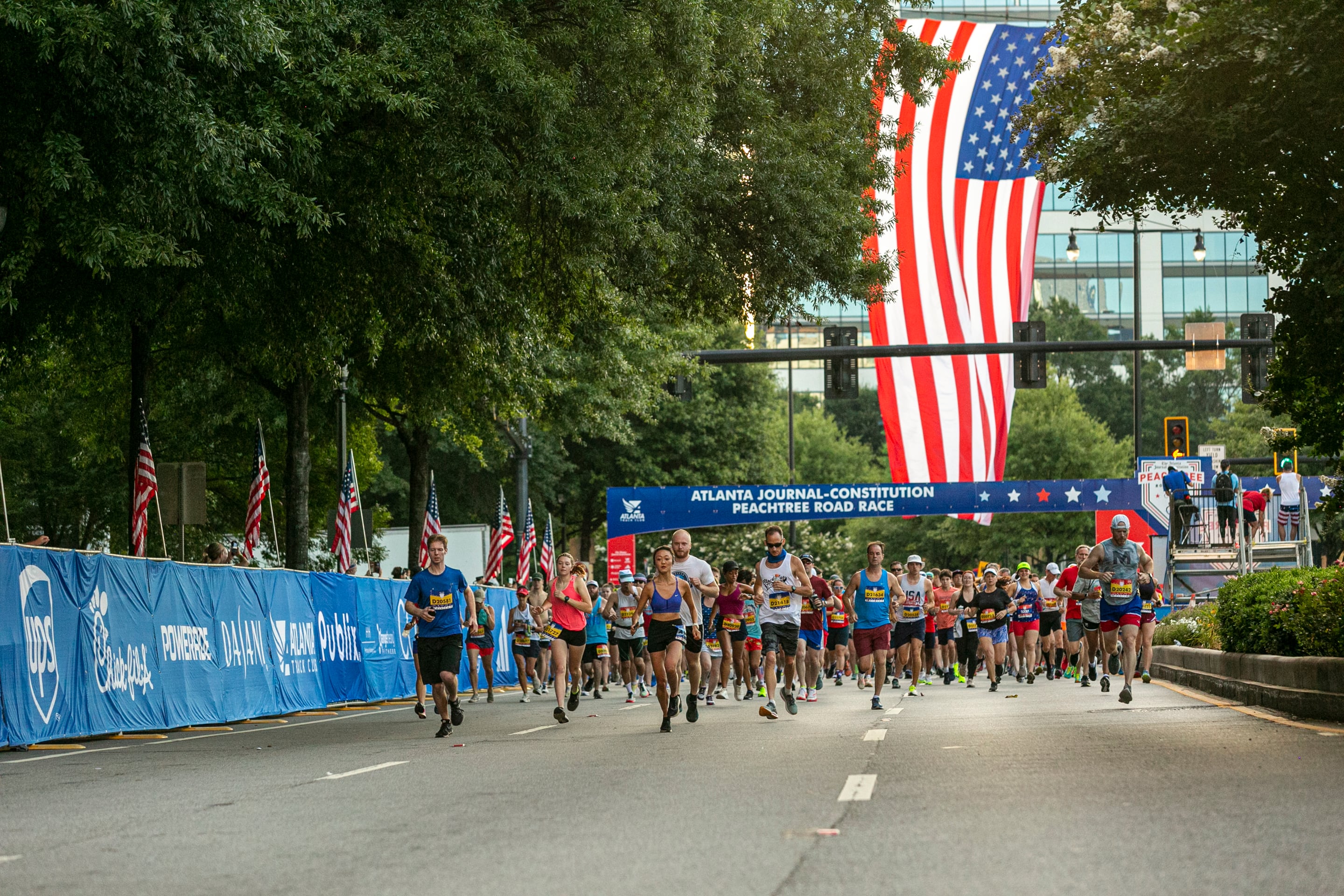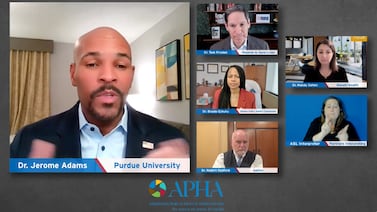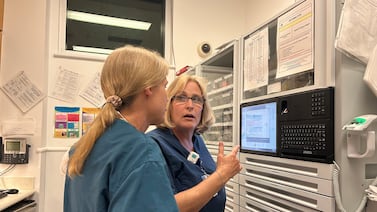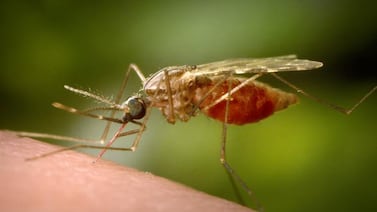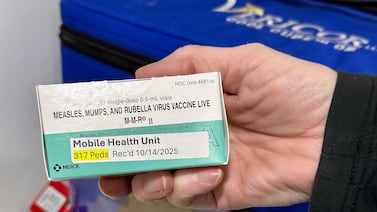Public health, explained: Sign up to receive Healthbeat’s free Atlanta newsletter here.
It’s time for the Peachtree Road Race in Atlanta. The city is gearing up for more than 50,000 runners to run, walk, or wheel down the city’s most famous thoroughfare on Friday. They’ll be cheered on by thousands of fans, bands, DJs, dance crews, and even a priest blessing runners with holy water.
The race is much more than the city’s sweatiest party, though. It’s a gateway to running and movement for health, said the Atlanta Track Club’s Natalie Cabanas, director of marketing and communications.
The club’s inclusive spirit aims to draw participants of all backgrounds and ages into the shared joy of racing through the city. Since its first run in 1970, the annual race down Peachtree Street has grown into the world’s largest 10K.
The club works to reach people where they are, whether through free running programs for children, training programs that focus on running and walking, and even advocating for better infrastructure for exercise, Cabanas said.
The club announced plans in 2023 to build a $100 million indoor track facility in the center of the city. CEO Rich Kenah said those plans are moving ahead, but a specific timeline hasn’t been announced.
Ahead of Friday’s 6.2-mile romp, Cabanas gave Healthbeat a look into how the country’s second-largest running organization thinks about how running contributes to public health.
First off, it’s going to be hot. The forecast predicts a temperature of around 73 degrees at the 6:30 a.m. start, going up to a high of around 93 during the day. Last year, high temperatures led organizers to issue a “black flag warning” mid-morning and halt the race, though by that time almost all participants had finished.
This year, organizers moved up the start time by 10 minutes. And the finish area in Piedmont Park will offer cooling towels and shaded recovery zones.
Tell us about the Atlanta Track Club and how it thinks about health, especially public health?
Our mission is to inspire and engage the community to live healthier, more active lives through running and walking. But we see health as much more than physical fitness. We think of it as a public good — something that strengthens neighborhoods, bridges communities, and supports emotional and mental well-being, as much as physical wellness.
That’s why our work extends far beyond the start line. From free programs like Kilometer Kids, which gets thousands of children moving every year, to training programs and infrastructure advocacy, we’re committed to making movement part of daily life in Atlanta.
Whether you’re walking your neighborhood, chasing a personal best, or participating in one of our 40+ events, including the world’s largest 10K, we want Atlantans to see movement as accessible, joyful, and life-changing.
What would you say to someone who stopped exercising but wants to get started again? Why is exercise important to public health?
Watching 50,000 people of every age, ability, and background move together down Peachtree Street is one of the most emotional and inspiring things you’ll ever witness. The Peachtree is more than a race. It’s a celebration of what’s possible when an entire city comes together around something positive.
To anyone who’s had a fitness lapse or doesn’t know where to begin: This race is for you. You don’t need to be fast or experienced. You just need to start. The Peachtree is what we call a “gateway race” — for many, it’s the first step back into movement. We have walkers, runners, and first-timers from age 11 to 96. And we have year-round programs designed to support you every step of the way.
Exercise is one of the most effective public health tools we have. It reduces the risk of chronic disease, improves mental health, fights isolation, and helps people reconnect with themselves and their communities. And when we move together, we heal together.
Why is ATC among the largest track clubs in the country? How do you unite people around something like the Peachtree Road Race in a time of division?
Atlanta Track Club is currently the second-largest running organization and nonprofit in the country. We’re on a mission to make Atlanta the healthiest city in the country. We create year-round opportunities for people to come together around a shared belief in health, movement, and belonging.
In times of division, the Peachtree is a powerful counterpoint. On July 4, people from all walks of life — veterans, elite athletes, parents, first-time 10K finishers — show up on the same start line. They cheer each other on, high-five strangers, and celebrate together. It’s not about where you’re from or what pace you run. It’s about showing up. That kind of unity is rare — and deeply needed.
Rebecca Grapevine, a reporter covering public health in Atlanta for Healthbeat, will be running the Peachtree Road Race this year. Contact Rebecca at rgrapevine@healthbeat.org.

